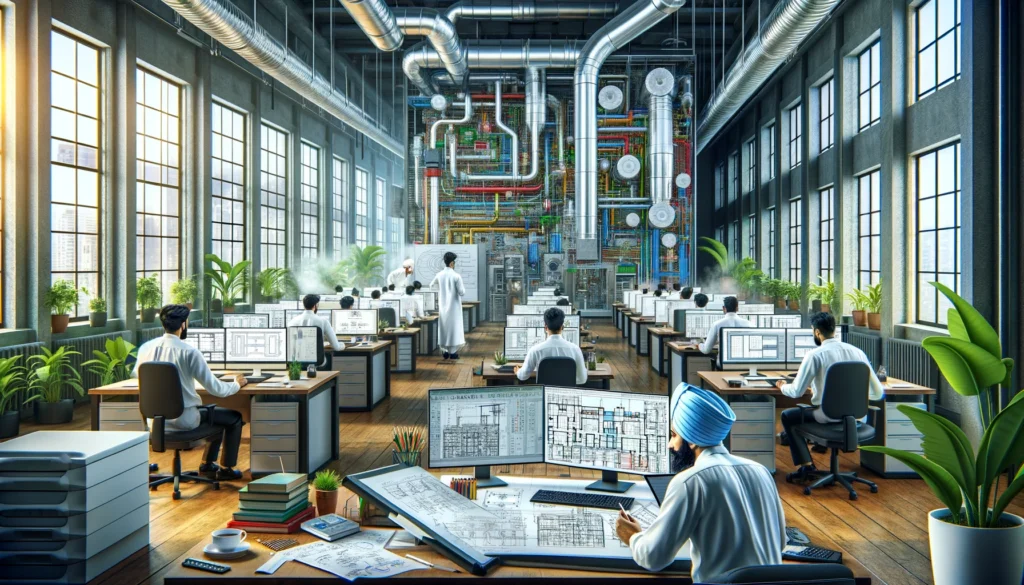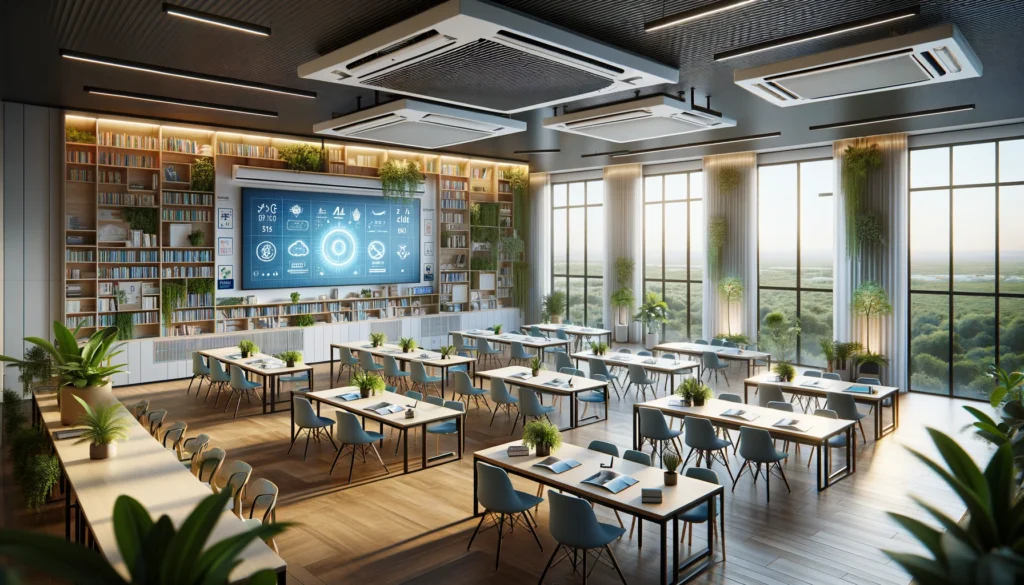HVAC Design and Drafting
A Comprehensive Course for Engineering Professionals
- 45 Days Training
- Project Work With Next Trends
- Placement Assistance
- Classroom | Online | Pre-Recorded
HVAC Design and Drafting
Unlock the secrets of HVAC design and elevate your engineering expertise with our cutting-edge HVAC Design Course at MEP Centre. Designed for professionals seeking to advance their skills in the dynamic field of Mechanical, Electrical, and Plumbing (MEP) engineering, this course is meticulously crafted to provide an in-depth understanding of HVAC systems and their design principles.
Course details
- Build Your Foundation: Learn the basics of heating, ventilation, and air conditioning (HVAC) — no technical background needed.
- Industry Relevance: Understand how modern buildings stay comfortable and safe, using the latest technology and standards.
- Career Growth: Equip yourself with in-demand skills that open doors to various roles in the building and construction industry.
A straightforward overview of course content without using technical terms. For example, “Learn how air conditioning and heating systems work, how to design them for different types of buildings, and how to make buildings energy-efficient and comfortable.
- Flexible Learning: Join the course online or attend classes in person — choose what works best for you.
- Hands-On Training: Gain practical experience through live projects before completing the course.
- Supportive Community: Get help from instructors and peers in our course forums and direct support channels.
- Open to All Graduates and Diploma Holders: Whether you’ve completed a degree in any field or hold a diploma, this course is designed to be accessible to a wide range of backgrounds. There’s no need for prior experience or specific technical knowledge in HVAC systems.

our curriculum
Introduction to HVAC
- Basics Explained: Discover what HVAC is and why it’s crucial for comfort in buildings.
- Heat Transfer Made Simple: Learn how heat moves and affects temperature control.
- Understanding Heat Types: Get to know the different kinds of heat involved in HVAC systems.
- Standards and Codes: A straightforward look at the rules guiding safe and efficient HVAC design.
Components of Air-Conditioning and Refrigeration
- How Cooling Works: The process of refrigeration explained in easy terms.
- Vital Parts of the System: Learn about the components that make up HVAC systems and their roles in simple language.
- Coolants: What they are and why they’re important.
Types of Air-Conditioning Systems
- From Small to Large Systems: Understand the range of air conditioning systems, from window units to central systems.
- How They Work: Basic principles of operation for each system type, explained through diagrams.
Air Conditioning Categories
- Different System Designs: Overview of the main designs of air conditioning systems and where they are used.
- Psychrometrics Simplified: Learn about the science of air properties and conditioning without the complexity.
Calculating Cooling Needs
- Assessing Building Requirements: Simple methods to determine the cooling needs of a building.
- Manual Calculation Skills: Step-by-step guide to manually calculate cooling loads using straightforward forms.
Air Distribution and Ventilation
- Designing for Air Flow: Basics of how to create efficient air distribution systems.
- Ductwork Design Made Easy: Guidelines for sizing and laying out ducts, including tools to help like ductulators.
Working with Hydronic Systems
- Water-Based Cooling Systems: Introduction to systems that use water for heating and cooling.
- Piping and Pumps: Basics of choosing and sizing the right pipes and pumps for the system.
Advanced Systems: VRF/VRV
- Next-Level Cooling Technology: Exploring advanced refrigeration technology and how to choose equipment.
Beyond Cooling and Heating
- Sustainable Practices: Introduction to green building concepts and efficiency.
- Special Environments: Basics of designing HVAC for unique spaces like clean rooms.
Safety and Software Tools
- Fire Safety Awareness: Basic safety principles related to HVAC systems.
- Digital Tools: Overview of software that helps in designing and calculating needs for HVAC systems.
Soft Skills for Career Advancement
- Professional Development: Tips on resume writing, interview preparation, and enhancing communication for career growth
Project Work
- Real-World Application: Complete two projects that allow you to apply what you’ve learned in a practical setting, with guidance from instructors.
Professional Roles in HVAC Design and Drafting
- HVAC Design Engineer
- HVAC Drafter
- HVAC Project Manager
- Sales Engineer
- Energy Auditor
- BIM Coordinator
- HVAC Controls Engineer
Diverse Applications of Air Conditioning Systems
1.
Medical and Healthcare Facilities

2.
Industrial and Manufacturing

3.
Data Centers and IT Facilities

4.
Agricultural and Farming

5.
Transportation and Vehicles

6.
Entertainment and Leisure

7.
Educational Institutions

8.
Residential Complexes

9.
Museums and Archives

Let's Forge a Future Together
- +91 9908080913
- info@meptrainings.com


